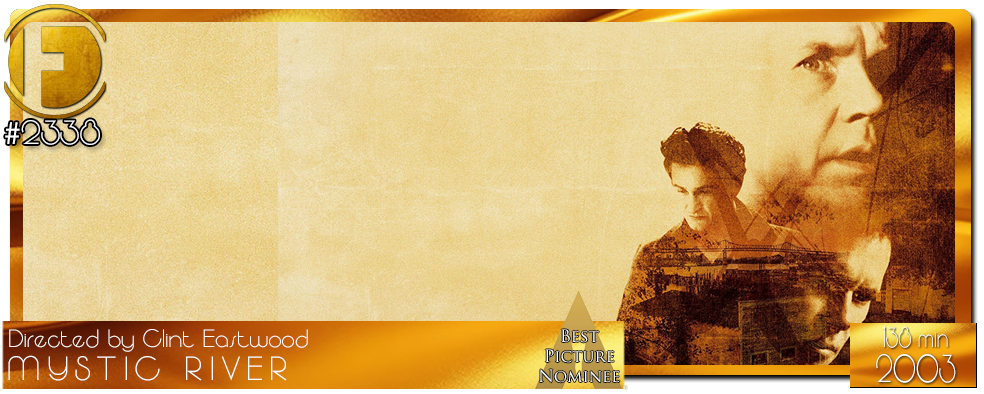Movie Review – Mystic River
Principal Cast : Sean Penn, Tim Robbins, Kevin Bacon, Laurence Fishburne, Marcia Gay Harden, Laura Linney, Tom Guiry, Spencer Treat Clark, Andrew Mackin, Emmy Rossum, Jenny O’Hara, Kevin Chapman, Adam Nelson, Robert Wahlberg, Cayden Boyd, John Doman, Ari Graynor, Kevin Conway, Eli Wallach.
Synopsis: The tragic murder of a 19-year-old girl reunites three childhood friends still living in Boston–the victim’s gangster father, a detective, and the disturbed man they both suspect of killing her.
********
Nominated for Best Picture as well as Director, Adapted Screenplay and a number of Acting categories, Mystic River, directed by Clint Eastwood, emerges as a haunting exploration of grief, guilt, and the enduring bonds of childhood friendship set against the backdrop of a gritty Boston neighbourhood. Adapted from Dennis Lehane’s novel, the film immerses viewers in a meticulously crafted narrative where three childhood friends, played with raw intensity by Sean Penn, Tim Robbins, and Kevin Bacon, are reunited by a tragic event that unravels their lives. Eastwood’s direction brings a profound depth to the storytelling, capturing the emotional complexities of the characters with sensitivity and restraint. As the mystery deepens and secrets are unearthed, Mystic River grips audiences with its powerful performances, atmospheric cinematography, and a narrative that resonates long after the credits roll.
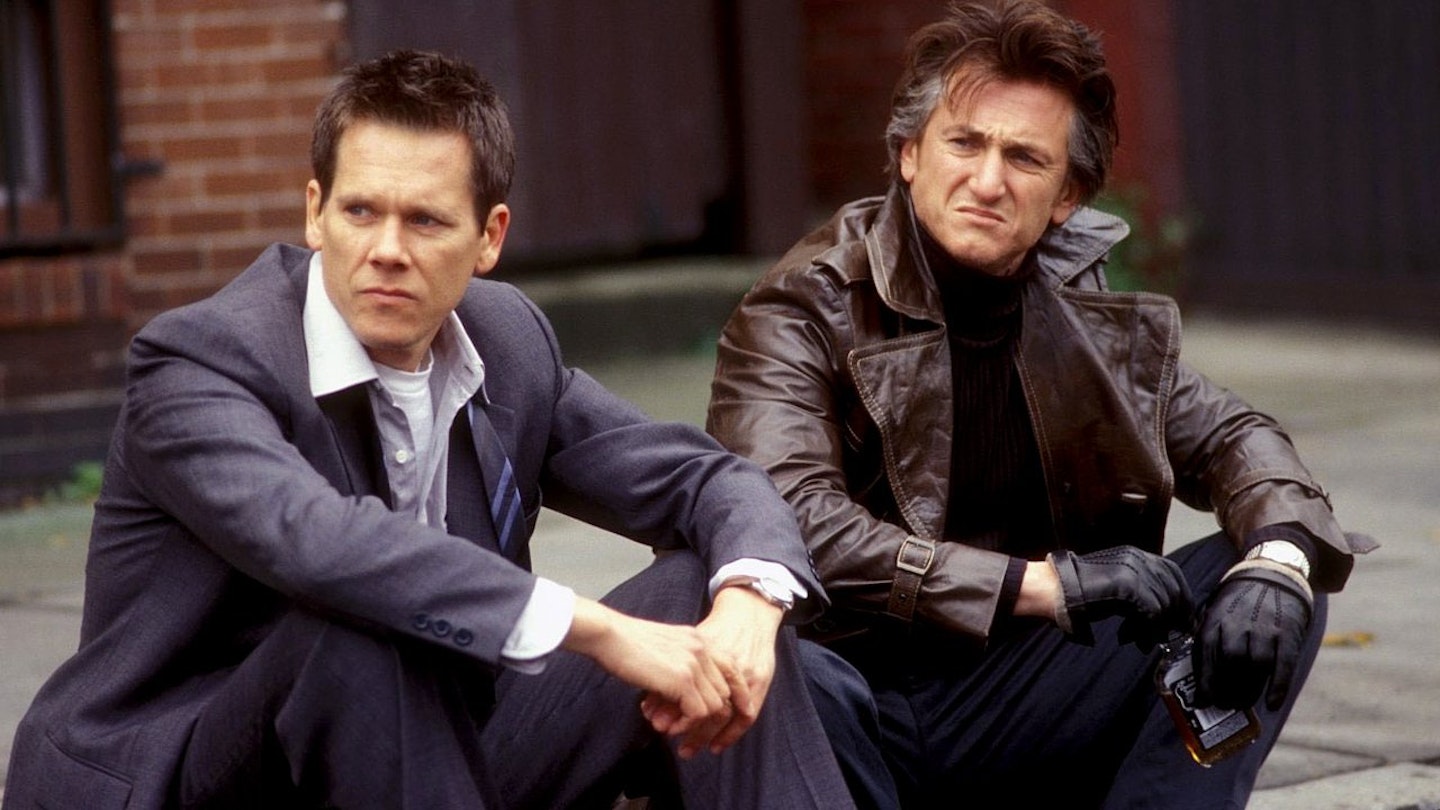
Mystic River delves into the intertwined lives of three childhood friends—Jimmy Markum (Sean Penn), Dave Boyle (Tim Robbins), and Sean Devine (Kevin Bacon)—whose paths diverged after a traumatic event in their youth. The film opens with a flashback to 1975, where the boys are playing in their Boston neighbourhood. Dave is abducted and sexually abused by two men posing as police officers, leaving a lasting scar on his psyche and altering the course of their lives forever. Flash forward to the present day, Jimmy is now a reformed ex-con running a corner store, married to Annabeth (Laura Linney), and mourning the loss of his daughter Katie, who has been brutally murdered. Sean is a detective investigating Katie’s murder, struggling with his own personal demons and a strained relationship with his wife, Lauren (Marcia Gay Harden). Dave, haunted by his past trauma, lives a troubled life with his wife Celeste (Marcia Gay Harden) and is drawn back into the orbit of Jimmy and Sean after becoming a suspect in Katie’s murder. As Sean delves deeper into the investigation, tensions rise between the three friends, revealing long-buried secrets and resentments. Jimmy, consumed by grief and a thirst for vengeance, becomes increasingly desperate to find Katie’s killer. Dave, grappling with his own guilt and suspicion, faces a community that sees him as a pariah. The narrative twists and turns as suspicions shift, truths are uncovered, and the tragic consequences of the past reverberate through the present.
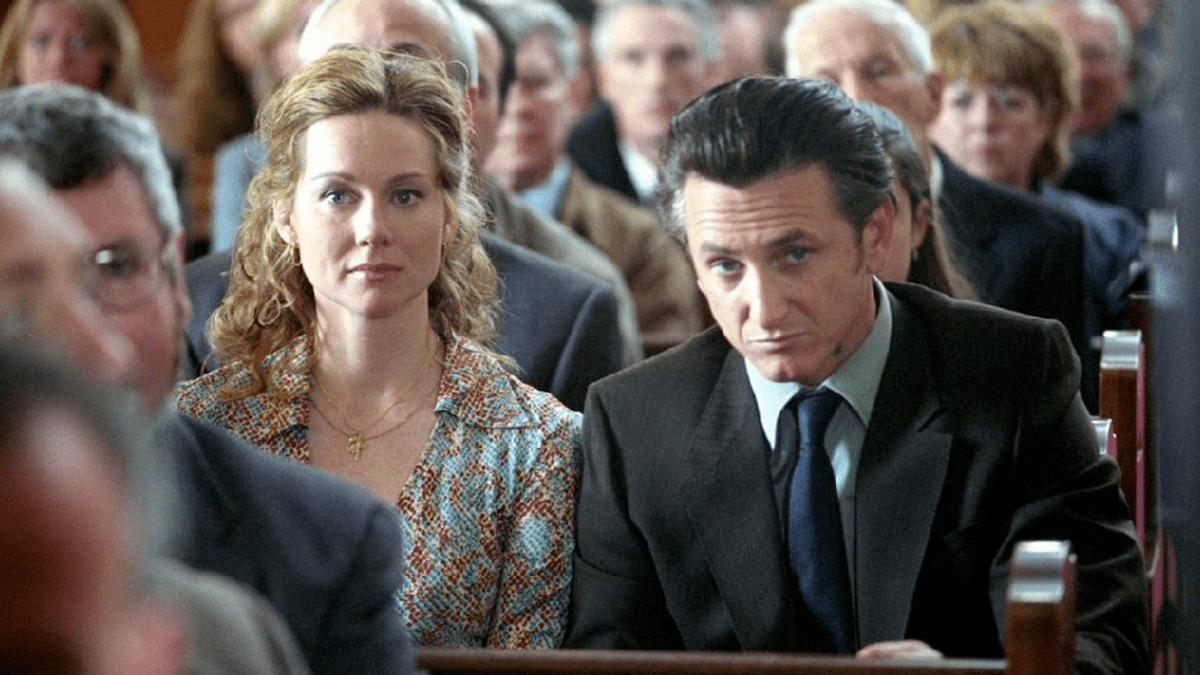
At its core, Mystic River grapples with profound loss and the grief that follows. Jimmy Markum’s grief over the murder of his daughter Katie drives much of the narrative. His emotional journey is deeply affecting, portraying the devastation and desperate search for justice in the face of incomprehensible loss. The film also examines the complexities of friendship, particularly how childhood bonds can be tested and fractured by adulthood. Jimmy, Sean, and Dave share a history tainted by a traumatic event that resurfaces decades later, challenging their loyalty and trust in one another. The theme of betrayal runs through the narrative, with secrets and lies threatening to destroy the fragile connections between them. For example, Dave Boyle’s abduction and abuse as a child profoundly shape his adult life. Mystic River explores the long-term psychological effects of trauma, portraying how Dave’s experiences have left him scarred, isolated, and haunted by memories he can’t escape. His trauma is contrasted with Jimmy and Sean’s struggles, highlighting how different paths taken in the aftermath of trauma shape their identities and relationships.
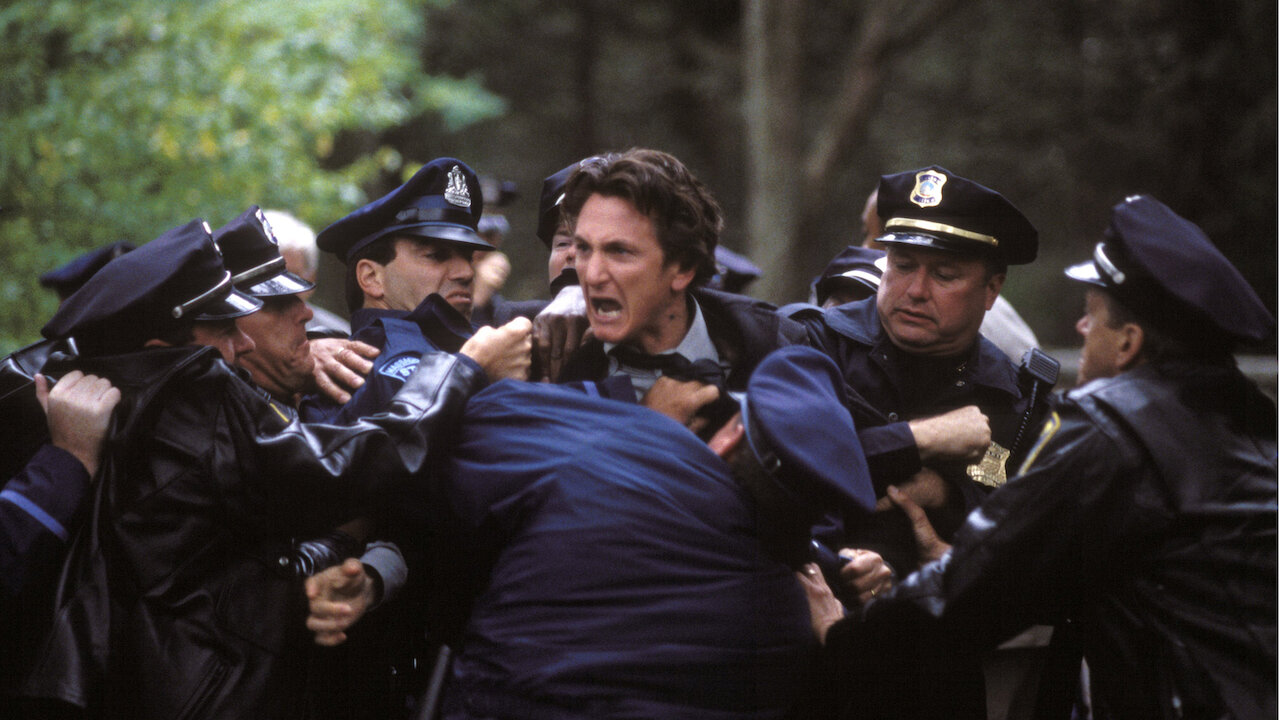
The quest for justice and the desire for revenge are also central themes in Mystic River. Jimmy’s relentless pursuit to find his daughter’s killer blurs the lines between justice and vengeance, raising questions about morality and the consequences of pursuing personal justice outside the law. Sean, as a detective, represents the legal pursuit of justice, navigating ethical dilemmas while trying to uncover the truth behind Katie’s murder. The film portrays the tight-knit community of Boston’s Mystic River neighbourhood as both a source of support and judgment. The neighbourhood serves as a microcosm reflecting larger societal issues such as class divisions, stigma, and the impact of violence on communities. Identity, shaped by upbringing and environment, plays a significant role in how characters are perceived and how they perceive themselves within this community. Crucially, the film is also marked by moral ambiguity, challenging viewers to question the actions and motivations of its characters. Each character is flawed and layered, with shades of grey that complicate their moral compasses. This ambiguity adds depth to the narrative, inviting reflection on the complexities of human nature and the choices we make in moments of crisis.
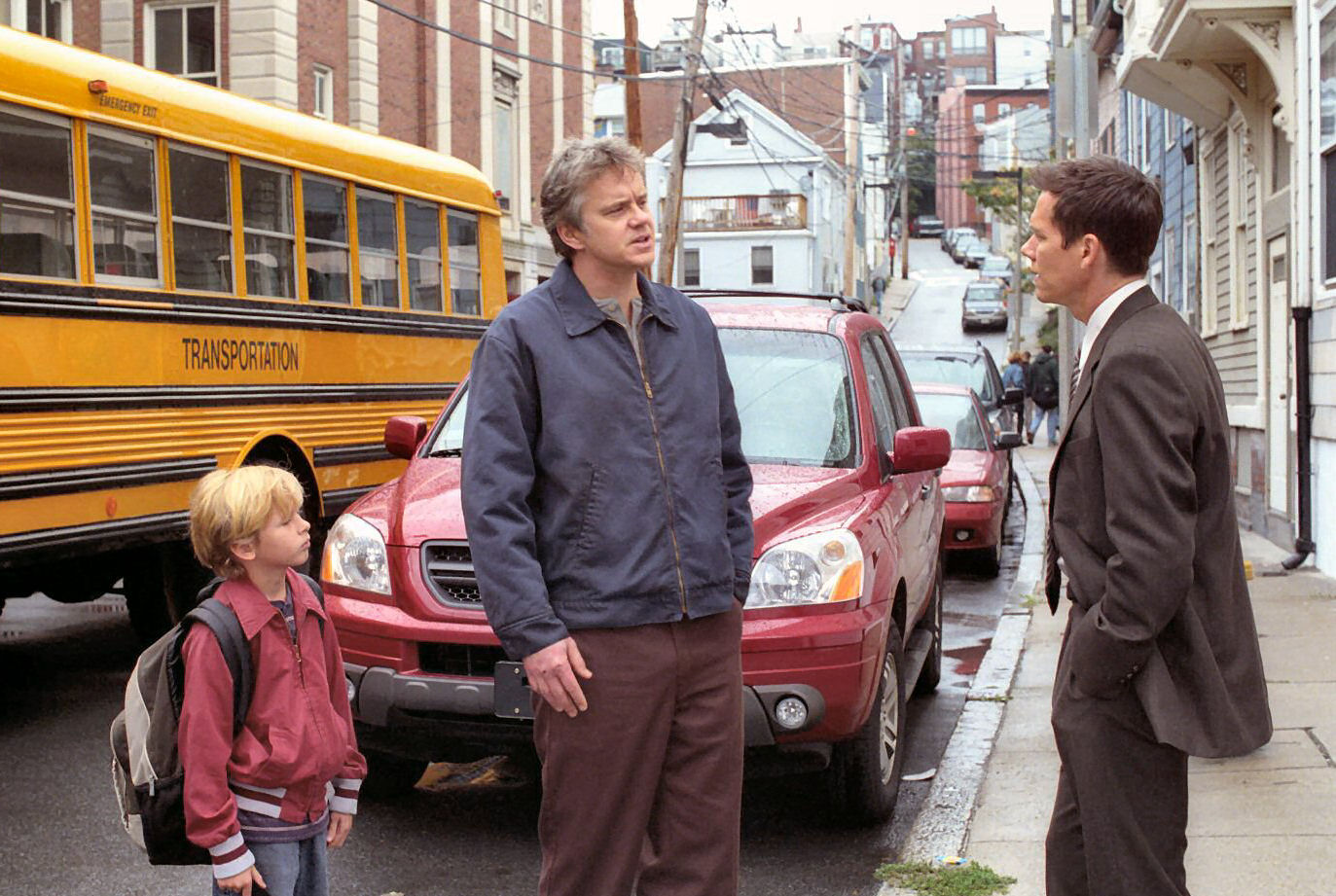
The ensemble cast delivers standout performances that elevate Mystic River to significant heights. Sean Penn commands the screen with his portrayal of Jimmy Markum, a volatile ex-convict grappling with loss and a quest for justice that borders on obsession. Penn’s portrayal is a tour de force of emotional intensity, capturing the complexities of grief and the nuances of paternal love with raw authenticity. Tim Robbins delivers yet another a career-defining performance as Dave Boyle, whose traumatic childhood experience haunts his adult life with a haunting mixture of vulnerability and repressed rage. Robbins imbues Dave with a quiet anguish that simmers beneath the surface, revealing itself in moments of heartbreaking vulnerability and cathartic release. Kevin Bacon rounds out the trio of leads with his portrayal of Sean Devine, a dedicated detective whose personal connection to Jimmy and Dave intertwines with his professional duties. Bacon brings a quiet strength and moral complexity to Sean, navigating the murky waters of loyalty, duty, and the quest for truth with understated grace.
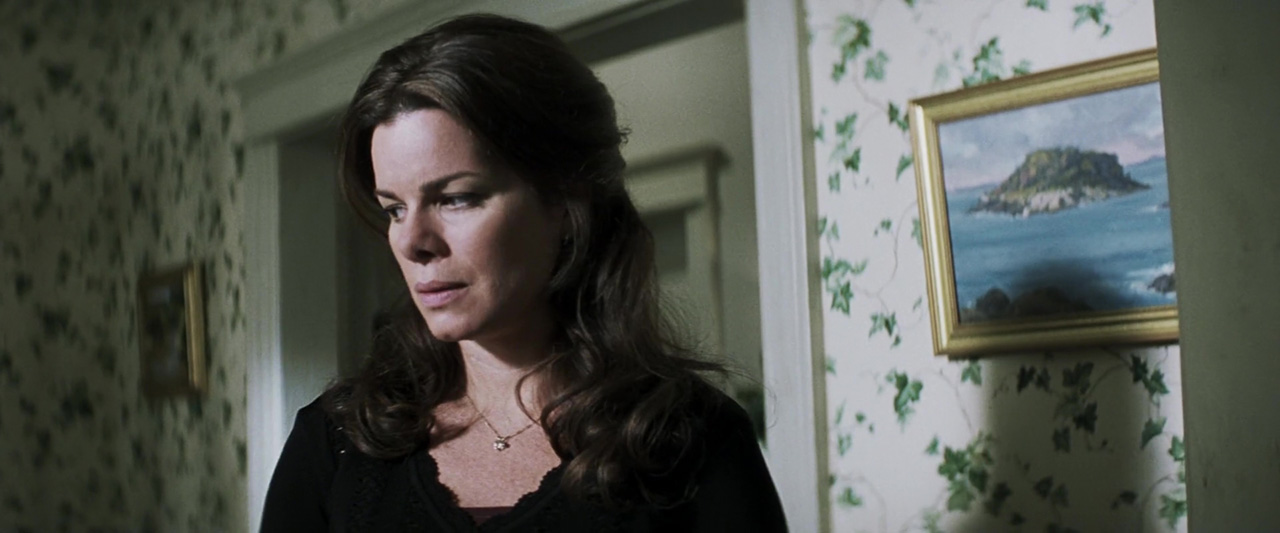
Dennis Lehane’s intricate narrative unfolds with a masterful blend of suspense and introspection, drawing viewers into a web of secrets, lies, and buried truths. Eastwood’s direction maintains a deliberate pace that allows each narrative thread to unfold organically, building tension and emotional resonance with each revelation. The film’s visual style, captured by cinematographer Tom Stern, evokes the atmospheric grittiness of its Boston setting while infusing moments of quiet beauty and introspection. The use of shadow and light reflects the characters’ inner turmoil and moral ambiguities, enhancing the film’s thematic exploration of justice, revenge, and the complexities of human nature. Clint Eastwood’s directorial prowess shines throughout Mystic River, as he deftly balances the film’s narrative complexity with a keen understanding of character-driven storytelling. The screenplay by Brian Helgeland remains faithful to Lehane’s source material, capturing its rich tapestry of emotions and moral dilemmas with nuance and sensitivity. The film’s thematic richness extends beyond its central narrative, exploring broader themes of community, identity, and the search for meaning in the face of tragedy. Eastwood’s direction encourages introspection and empathy, challenging viewers to confront their own beliefs about justice and redemption.
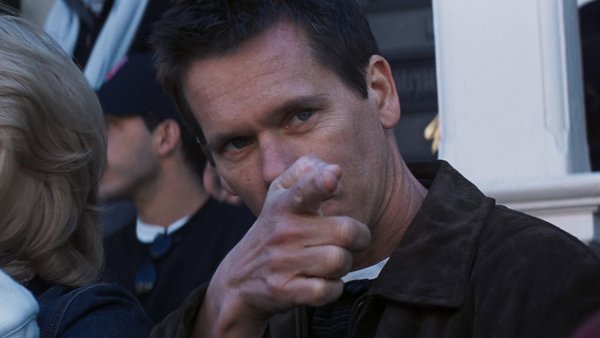
Mystic River stands as Eastwood’s masterwork of contemporary cinema, blending profound storytelling, powerhouse performances, and thematic depth into a gripping and emotionally resonant narrative. Eastwood’s directorial vision, coupled with stellar performances from Sean Penn, Tim Robbins, and Kevin Bacon, as well as the wider ensemble, provokes the film to a poignant exploration of trauma, guilt, and the enduring bonds of friendship and family. Mystic River is essential American cinema, and arguably one of Clint Eastwood’s most profound directorial efforts.

